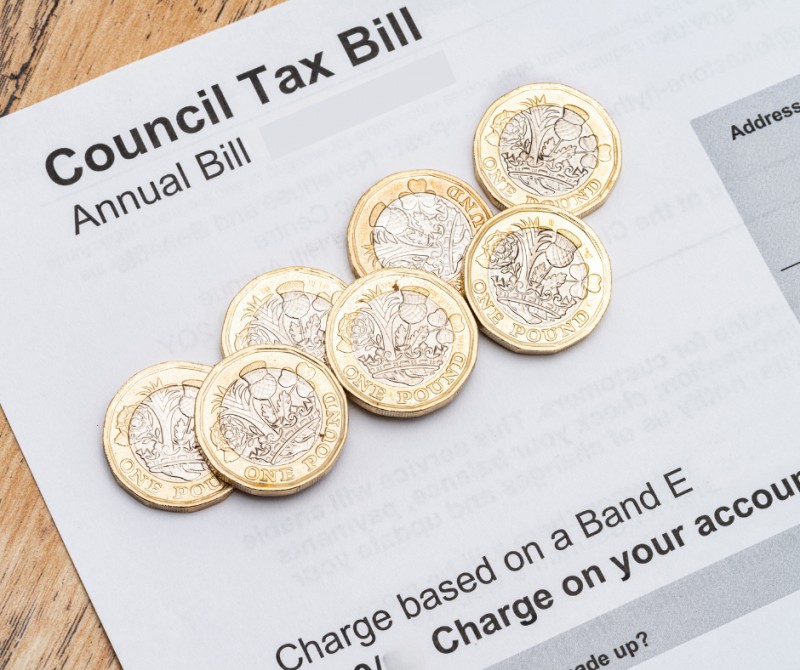
Letting out a rental property in Northampton comes with its share of costs. In addition to insurance and maintenance, council tax is another potential expense landlords may need to consider.
So, who is responsible for council tax – the landlord or the tenant? Typically, tenants are the ones who pay it, but specific circumstances can shift this responsibility back to the landlord, especially if the property is unoccupied.
This guide outlines who generally pays council tax, when landlords might be responsible, and what exceptions may apply.
Understanding Council Tax
Council tax is a fee collected by local councils to fund community services, including waste management, street cleaning, education, and emergency services.
Here's an overview of council tax basics:
-
Property Bands: Properties are classified into bands (A to H) based on their estimated value as of April 1st, 1991. The higher the value, the higher the band.
-
Charges: The amount of council tax owed depends on the property's band and the rate set by the local council. Rates can vary between councils.
-
Who Pays: Usually, the person living in the property is responsible. However, some rental situations make the landlord liable.
-
Discounts and Exemptions: Some groups qualify for council tax reductions, including students, single occupants, and people with disabilities.
-
Payment: Most councils offer the option to pay council tax in monthly installments over 10 or 12 months, or in a single annual payment.
Who is Responsible for Council Tax in a Rental Property?
In most cases, tenants cover the council tax. If the property is rented by a single tenant or jointly by multiple tenants, the local council will bill them directly. When tenants share the property, the council tax bill is split among them.
However, there are situations where landlords must take on the council tax bill, including:
- When the property is vacant
- When the property is classified as an HMO (House of Multiple Occupancy)
- When the property is a care home, hospital, or refuge
- If all occupants are under 18
- If all occupants are asylum seekers
- If all occupants are temporary residents with another permanent home
Local council policies can vary, so it’s wise to review any additional exemptions on the council's website.
Do Landlords Pay Council Tax on Empty Properties?
Yes, landlords are usually responsible for council tax if the property is vacant. Some councils offer discounts based on how long the property has been empty and the specific circumstances, so it’s worthwhile to explore available options on your local council’s website.
For more details, check your local council’s website, or speak to the team at Horts for advice.
Are Landlords Liable for Tenants' Unpaid Council Tax?
Generally, landlords are not liable for council tax debts incurred by tenants. The responsibility remains with the tenants, even if they move out with unpaid council tax bills. In these cases, the debt is solely theirs, not the landlord’s.
Get Professional Guidance from Letting Experts in Northampton
For tailored advice on managing costs as a landlord in Northampton, the team at Horts is here to help. Our knowledgeable letting agents offer property management services designed to make your landlord experience as smooth as possible.
Contact us today to discuss how our services can benefit you by calling 01788 550044 or 01604 639933, or email rentals@horts.co.uk.
In the meantime, we've answered your common questions about council tax charges for landlords.
FAQs: Council Tax and Landlord Responsibilities
Are landlords responsible for council tax in a rented property?
Generally, tenants pay council tax. However, landlords may be liable in cases where the property is vacant or classed as a HMO, among other exemptions.
What if tenants fail to pay their council tax?
The council tax debt is the tenant's responsibility, even if they leave unpaid amounts when moving out. Landlords are not liable for this debt.
Do landlords pay council tax when the property is empty?
Yes, landlords typically cover council tax on empty properties. Some councils may offer discounts, so it’s a good idea to check local regulations.
How is council tax calculated, and can landlords get discounts?
Council tax is calculated based on the property’s band and local rates. While landlords generally pay for empty properties, local councils sometimes offer discounts. Check with your council or a letting agent for further information.
